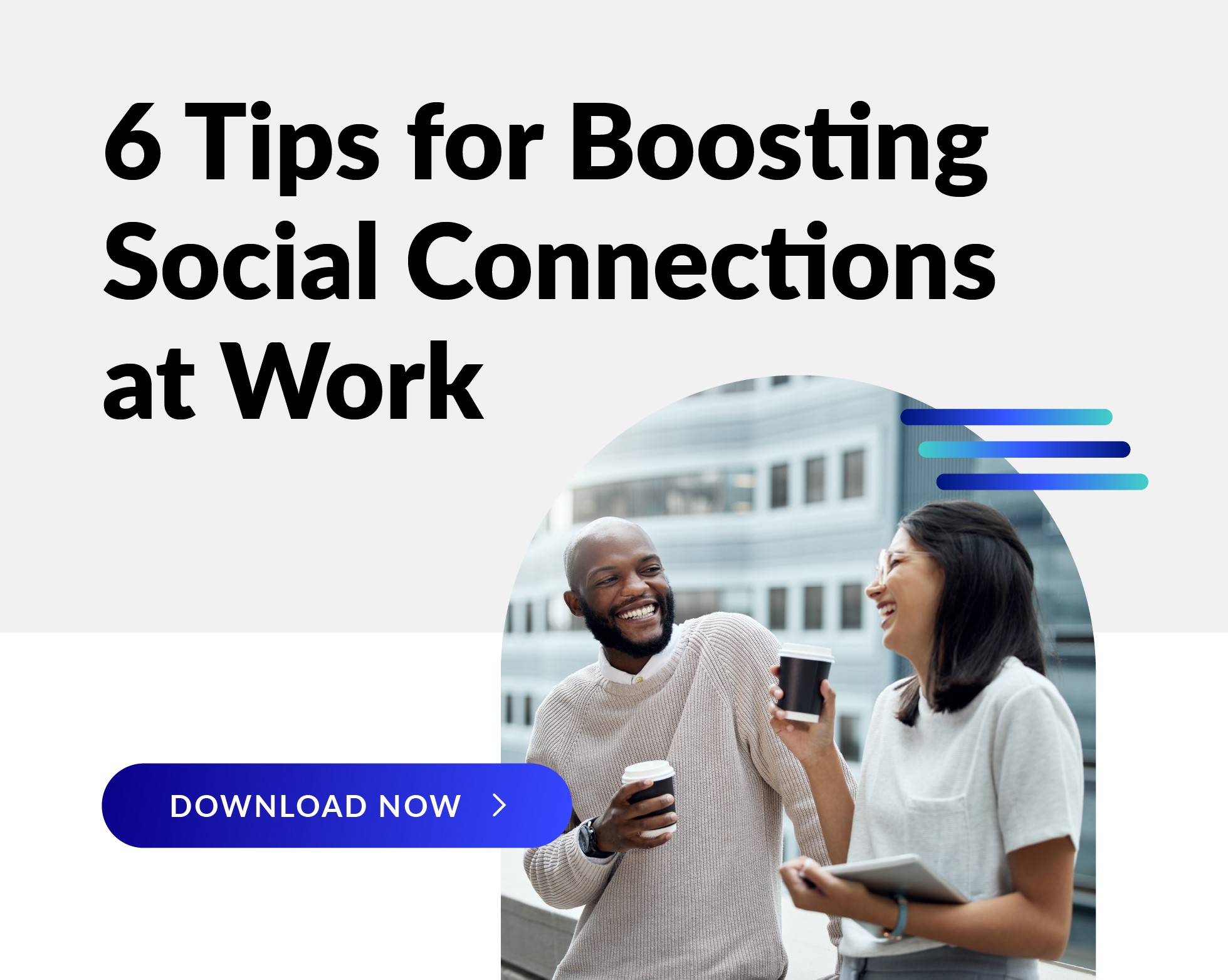 Over the past year, workplace stress and burnout levels have skyrocketed. While this is partly due to the pandemic, stressed-out employees were a concern well before 2020. In this week’s blog, we offer four ways employers can equip employees with the tools and skills to manage stress and increase resilience, with a special focus on the needs of managers.
Over the past year, workplace stress and burnout levels have skyrocketed. While this is partly due to the pandemic, stressed-out employees were a concern well before 2020. In this week’s blog, we offer four ways employers can equip employees with the tools and skills to manage stress and increase resilience, with a special focus on the needs of managers.
A 2020 Gallup report found that 76% of employees sometimes experience burnout on the job, and 28% say they are burned out at work “very often” or “always.”
What’s causing this stress?
There are a few things that impact workplace stress and burnout, including:
- Cultural norms—the pressure of feeling like we always need to be connected to work, the stigma around taking time off, and blurred boundaries between work and home.
- Corporate culture—unrealistic expectations from senior leadership and managers, increased workloads due to downsizing, and lack of support and recognition.
- Organizational change—mergers, technological transformation, and reorganizations contribute to a turbulent, stressful work environment.
Stress has a negative effect on organizational culture, productivity, and ultimately the bottom line—not to mention the toll it takes on employees’ mental and physical health.
What can employers do to help?
Organizations have an opportunity to support their employees’ well-being at an individual level as well as an organizational level. Here are some actionable ways employers can help reduce stress and increase resilience:
1. Build a supportive corporate culture.
It’s tempting to just create a host of stress management programs and training for employees. While this is an important component, one of the most effective techniques for managing stress for employees is to create a culture that:
- Supports boundary-setting.
- Provides the flexibility employees need to manage work and home responsibilities.
- Encourages taking time off to recharge—possibly even mandating time off or designating mental health days.
- Gives employees permission to prioritize well-being and self-care at work.
- Fosters open dialogue between employees and managers to keep a check on work priorities and workload.
2. Ask leaders to walk the talk.
Leaders should make it a point to role-model stress-busting behaviors themselves. This could include blocking time on their calendars for fitness or meditation, hosting walking meetings, and being open about taking time off to care for their own physical and mental health—or others in their life who need care. Doing so sends the signal that looking after one’s mental health is a priority, empowering others in the organization to take time off to care for themselves, too.
3. Provide stress management tools and training to all employees.
- Give employees free access to mindfulness or meditation apps.
- Hold yoga or tai chi classes virtually or onsite.
- Offer the services of a personalized health coach through a well-being program.
- Encourage employees to sign up for stress management training modules offered by popular online education platforms.
- Leverage the services of an Employee Assistance Program (EAP) which, in addition to offering free counseling sessions, provides financial wellness and caregiving assistance—two very common sources of stress.
- Employ an onsite mental health counselor, who can also meet with employees virtually.
4. Help employees increase their resilience.
Resilience is our ability to deal with adversity and recover quickly after experiencing a challenging time. Put simply, it’s the skills you need to pivot from one difficult situation to another, and then do it again. Given that organizational change is a constant, experts say these adaptive capabilities are nothing less than the critical set of skills for the workforce of today—and tomorrow.1
Training employees to become more resilient has benefits for both the employee and employer. Employees experience better mental health and the ability to weather the ups and downs of work, and employers reap the benefits of a more satisfied, engaged workforce; reduced absenteeism and turnover; higher productivity; and possibly lower costs resulting from healthier, less-stressed employees.2
At WebMD Health Services, we help clients increase resilience in their workforce through our partnership with meQuilibrium. Built right into the WebMD ONE platform, the program assesses strengths, vulnerabilities, and personality types to help participants organize their thoughts, understand their emotions, and reframe setbacks.
Managers face unique circumstances when it comes to stress.
Managers are like the “sandwich generation” of the workplace, squeezed from both sides. They experience stress from demands placed on them by senior leadership, while also absorbing the stress their team is feeling. This has been particularly true during the pandemic, as managers have had to find ways to keep up morale and help employees navigate the personal challenges of working remotely. It will continue to be a factor as some employees return to the office, while others prefer to remain remote.
The old adage of putting your oxygen mask on first applies here. Managers need to look after their own mental health in order to be able to assist those they manage. This means being honest about their own stress, seeking out social support, getting enough sleep and exercise, eating well, and practicing self-care without feeling that it’s indulgent.3
On some level, work will always be stressful. And in today’s fast-paced, turbulent corporate environment, change will be a given. Equipping employees with the tools and techniques to manage change and weather setbacks both personally and professionally will be key to maintaining a healthy, productive workforce.
Want to learn how we can help your employees become less stressed and more resilient? Visit our website or contact us at connect@webmd.net.
Related Content:

